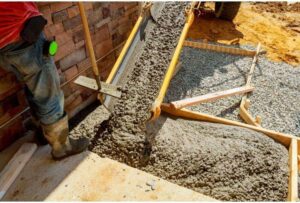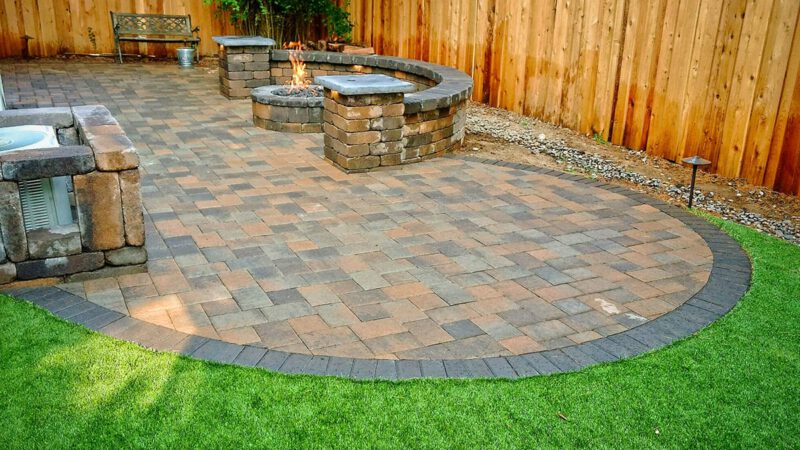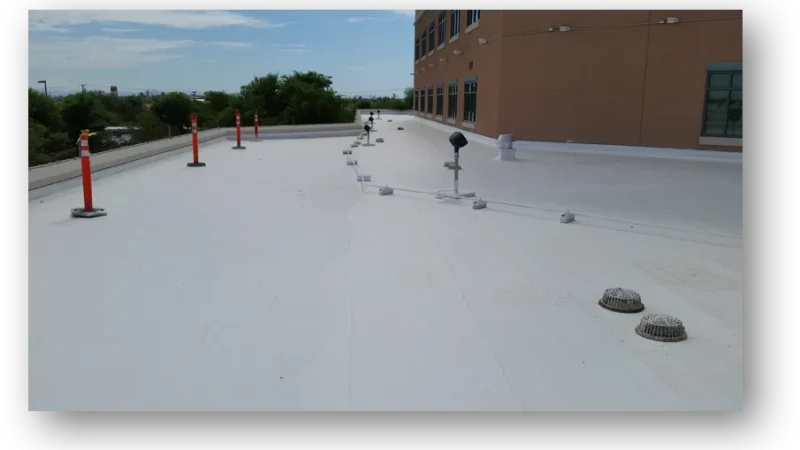What Does a Concrete Contractor Do?
A concrete contractor’s job is to build and repair concrete structures. They may specialize in residential, commercial, or road construction.

It’s best to work with a reputable Concrete Contractor who can provide references from past clients and has a website with clear contact information. You can connect with them directly and receive the best service possible.
Concrete is a robust, versatile construction material that can be poured into many shapes and used for a variety of projects. It is made from a mixture of sand, gravel, and water, with cement added to make it stronger. Concrete contractors are skilled in handling the concrete process from start to finish, and can help you build a structure that is both functional and durable.
The first step in any concrete project is preparing the site. This includes clearing the area, removing any debris or trash, and leveling the ground as needed. It also involves laying out formwork, which is the template used to shape the concrete once it’s poured. The contractors must be precise and accurate in constructing the formwork, or the finished product will not be as strong or long-lasting as it should be.
Concrete contractors are skilled in building various types of features with concrete, including driveways, sidewalks, and patios. They understand the ins and outs of the construction process and are able to create unique designs that add character to any property. They are also able to repair existing concrete structures, such as patios or walkways that have been damaged over time.
One of the most important skills that a concrete contractor must have is customer service. This means listening to clients’ needs and responding to their questions promptly and effectively. It is also important for them to follow industry standards when it comes to safety and labor laws. Lastly, a concrete contractor should be able to communicate clearly and concisely with both the client and other contractors working on the same project.
A good concrete contractor will have a portfolio of previous work that they can show potential clients. This will give the client an idea of what to expect from their project and how long it will take to complete. Additionally, a quality contractor will utilize project management software to track the progress of their work and keep everyone updated on the status of the job.
Finally, a good concrete contractor will be able to provide a fair and competitive quote for the project. They should be able to explain how their estimate was arrived at, and include any additional costs that may be associated with the project. They should also be able to provide details about their experience, insurance coverage, and other relevant information.
Pouring
Concrete pouring is one of the most crucial stages in the construction process. It involves mixing, spreading, and compacting a mixture of cement, water, and sand to form a solid surface. The resulting material is extremely versatile and can be used for a variety of projects, including driveways, sidewalks, patios, pools, and walls. A skilled concrete contractor can create a beautiful finish that will last for years to come.
The first step in the concrete pouring process is to prepare the site. This involves clearing the area and removing any materials that may interfere with the concrete pouring. The contractor should also contact the local utility company to find out the locations of any pipes or wires beneath the ground. A specialized machine is then used to dig down to the required depth and remove any buried items. The next step is to lay a granular fill, which is a layer of crushed rock or gravel that is placed on top of the soil. This helps to level the surface and prevent water runoff. Finally, a plastic liner is put over the granular fill to protect it from damage.
Once the concrete has been poured, it must be leveled. This is done by using wooden boards that can reach both sides of the concrete form. This is known as screeding, and it helps to create a uniform appearance. The edges of the concrete are then molded to give them a smooth finish. Once the concrete has been leveled, a steel trowel is used to smooth the surface.
After the concrete has been smoothed, it is allowed to cure for up to 28 days. During this time, the contractor must cover the concrete in cold weather to avoid freezing and cracking. Once the concrete is cured, people can walk on it and drive on it.
Concrete can be a challenging material to work with, but if it is done properly, it can last a lifetime. To maintain the integrity of your concrete, it is recommended that you apply a high-quality sealer every one to five years. The frequency of application will depend on the climate where you live.
Finishing
Concrete can be finished in a number of different ways to enhance its appearance and functionality. A concrete contractor will use a variety of tools and techniques to achieve the look desired for the particular project, but the most important factor is skill. This comes from experience and training, but can also be learned through watching more experienced workers. It is important that a person understands the process of pouring and finishing concrete before taking on such a job, as it is possible to damage the surface with improper technique.
When the concrete has been poured it needs to be leveled and prepared for the finishing process. This can be done by dragging a screed board or 2×4 across the top of the concrete to ensure it is completely flat and evenly filled. It is also important to keep the concrete moist while it is curing. This can be done by sprinkling it or covering it in plastic to prevent drying too quickly, which can cause it to crack.
Once the concrete has been leveled it can be floated with a wood hand float or with a machine that uses float blades. This helps to smooth the concrete and embed aggregate particles deeper, creating a more consistent consistency that is easier to finish. It can also help to remove slight imperfections, humps and voids from the concrete, making it easier for steel troweling to be done.
Another way that concrete can be finished is with a stencil, which is used to create a design on the concrete before it hardens. This can be used to make the concrete resemble brick, tiles, natural stone and other materials. It is also common to add color to concrete once it has been poured, which can alter the final look of a project.
Once the concrete has been floated and troweled, it can be broomed for a rough texture quality or scored with a saw to create patterns or designs. Once the concrete has been broomed it can be sealed to protect it from stains. After the sealer has been applied, it is recommended to let the concrete cure for a minimum of 28 days before using it.
Maintenance
Concrete is a heavy and durable material that can last for years, but it’s not immune to damage. When it comes to maintaining your property’s concrete structures, you need a qualified concrete contractor who will get the job done right. The top-rated professionals at Sidewalk Repair Queens will ensure that your concrete is protected and looks great for a long time to come, all while following local laws and guidelines.
To make sure you’re hiring a reputable contractor, ask for a written contract detailing all the work they plan to do on your project. This contract should include everything from project deadlines to concrete driveway thickness and prices per square foot, as well as who will be responsible for each task. You also want to ask about any warranties they offer. However, it’s important to read the fine print, as many contractors have a limited warranty period that doesn’t cover all the things that can go wrong with their work.
Commercial concrete contractors are specialized construction professionals who provide a range of services related to concrete construction on commercial buildings and other commercial facilities. They have the knowledge and expertise to handle a variety of projects, from pouring new foundations and floors to repairing and restoring existing concrete structures. They also work closely with architects and engineers to ensure that their work is in compliance with all applicable building codes and regulations.
When choosing a concrete contractor, be sure to look for one with a proven track record of delivering high-quality work on time and within budget. You should also check out their online reviews and customer testimonials to see what other people have said about their work.
A concrete contractor is a skilled professional who forms, pours, finishes, and installs specified mass, pavement, flat and other concrete work. They prepare sites by backfilling and excavating to ensure that the soil can support the structure for years to come. They also place and finish surface treatments, such as asphalt paving and coatings, and install and maintain concrete reinforcement. In addition, they may also be responsible for placing and erecting steel or bars for reinforcing concrete.


